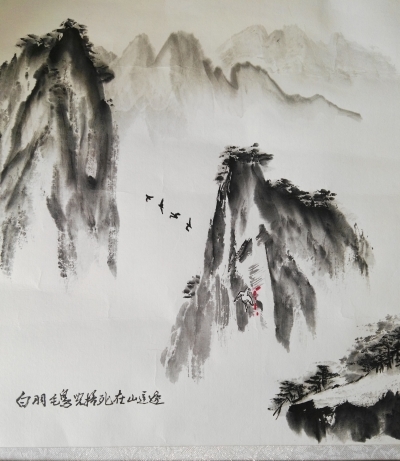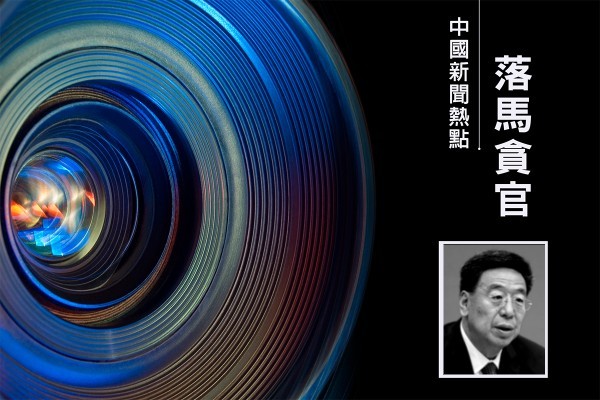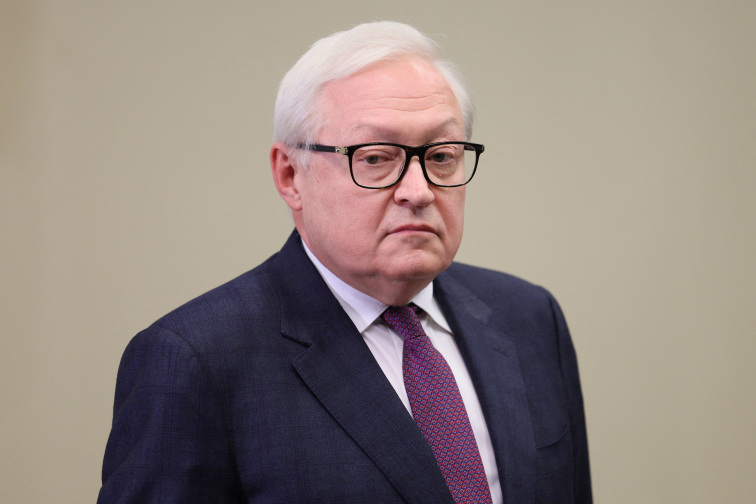Photo Caption: The first session of the 14th National People's Congress will open on March 5, 2023, at the Great Hall of the People in Beijing, China. (Photo by Lintao Zhang/Getty Images)
[People News] On December 26–27, the Chinese Communist Party (CCP) Politburo held its annual year-end democratic life meeting as usual. However, compared to a year ago, significant changes occurred. "Xi Jinping Thought" and the "Xi Core" have been noticeably downplayed, and the traditional loyalty pledging meeting has abruptly changed in tone. Xi Jinping can no longer freely critique Politburo members or impose demands on them, and evaluations of the Politburo's work for 2024 have been further subdued. The changes in this year-end Politburo meeting foreshadow major political shifts in Beijing.
The Disappearance of "Xi Jinping Thought" and Loyalty Pledges
Xinhua News Agency once reported that from December 21 to 22, 2023, the CCP Politburo held a special democratic life meeting focused on studying and implementing Xi Jinping Thought on Socialism with Chinese Characteristics for a New Era. This meeting was specifically designated as a thematic session for studying "Xi Jinping Thought," emphasizing the need to "strengthen loyalty." The key objective was for Politburo members to demonstrate their "loyalty" to Xi Jinping. At that time, Politburo members were required to "take the lead in thoroughly understanding and effectively implementing Xi Jinping Thought on Socialism with Chinese Characteristics for a New Era, as well as in implementing the Party Central Committee's decisions." They were also expected to proactively "identify shortcomings" in front of Xi Jinping.
For several years, these so-called year-end democratic life meetings had essentially become collective loyalty pledging sessions for Politburo members. The 2023 session marked a peak, with members compelled to regard "Xi Jinping Thought" as the highest principle. However, by the end of 2024, everything has changed dramatically.
This year's Politburo meeting was no longer labeled as a thematic session on "Xi Jinping Thought." The subtitle of the Xinhua News Agency report shifted to focus on "Party discipline learning and education." Although the report mentioned "Xi Jinping Thought," it no longer reiterated phrases such as members needing to "lead the way in thoroughly understanding and implementing" it. Crucially, the phrase "strengthen loyalty" has completely disappeared.
The fact that Politburo members no longer need to pledge loyalty to Xi Jinping at year-end meetings marks a significant shift within the Politburo. The downplaying of "Xi Jinping Thought" similarly signals a noticeable weakening of the Party leader's authority.
According to the Xinhua report, Politburo members still took turns speaking, "conducting criticism and self-criticism." However, the previously common term "identify shortcomings" was absent. This indicates that members no longer need to publicly acknowledge deficiencies in Xi’s presence or individually report their work to him.
The themes of the two Politburo life meetings a year apart were completely different, despite members still speaking in turn.
In the 2023 meeting, Xinhua reported that speeches were guided by documents such as the Regulations of the Central Politburo on Strengthening and Maintaining the Centralized and Unified Leadership of the Party Central Committee and the Implementation Rules for the Eight-Point Regulation of the Central Politburo. In contrast, this year’s meeting report placed the Regulations on Disciplinary Actions of the Communist Party of China at the forefront, relegating "centralized and unified leadership of the Party Central Committee" to a secondary position.
In 2023, the first focus of the six key points of discussion was "Xi Jinping Thought." However, in 2024, the number of focus points dropped to five, with "Xi Jinping Thought" no longer included.
The weakening of "Xi Jinping Thought," the softening of centralized leadership, and the disappearance of "strengthen loyalty" suggest that the "Xi Core" has significantly lost its previous dominance.
A Shift in Xi Jinping's Tone
In the 2023 meeting, Xinhua reported that Xi Jinping individually commented on each Politburo member's speeches and made specific demands. The purpose was said to be "conducting a political health check, sweeping away political dust, and purifying political souls."
This year, Xi's comments were described as achieving the purposes of "exchanging ideas, identifying problems, and clarifying directions."
The shift from "political health checks" to "exchanging ideas" represents a dramatic change. The previously commanding posture of the "Xi Core" has disappeared, with Politburo members now seemingly interacting with Xi on more equal footing.
In 2023, Xi’s speech at the meeting emphasized learning "Xi Jinping Thought" to "enhance intelligence, improve conduct, and promote action," while urging members to "consolidate and expand the results of thematic education." Such rhetoric was absent from this year’s report.
In 2023, Xi also highlighted the importance of ideological unity as the foundation of political and action unity, stressing that Politburo members must demonstrate leadership in aligning with "Xi Jinping Thought." This year’s report lacked such statements, indicating that the association between the "Party Central Committee" and "Xi Core" has weakened, and Politburo members are no longer willing to accept Xi’s dominance.
In the report on last year's meeting, Xi Jinping’s speech also emphasized that “safeguarding the centralized and unified leadership of the Party Central Committee is concrete, not abstract. It must first be implemented in firmly upholding the authority of the Party Central Committee and reflected in strengthening the 'Four Consciousnesses,' enhancing the 'Four Self-Confidences,' and achieving the 'Two Upholds' through practical actions.”
In the previous speech, the "authority of the Party Central Committee" essentially equated to the authority of the "Xi Core." However, this year’s report on Xi Jinping’s speech at the meeting omitted these points, indicating that Xi’s authority within the Politburo may be weakening. Notably, Xi himself did not mention the "Two Upholds."
In last year’s meeting, Xi Jinping also specifically addressed “democratic centralism,” stating that “democratic centralism involves both democracy and centralism, which are interdependent and mutually reinforcing.” He further urged Politburo members to “engage in serious thought when participating in the Party Central Committee’s deliberation on major decisions, and to fully express their views. They must promptly and comprehensively report real situations they encounter in their work, avoiding only reporting successes while concealing problems.”
The members of the Politburo formed during the CCP's 20th National Congress in 2022 were all personally selected by Xi Jinping. The 2023 Politburo meetings were likely dominated by Xi’s unilateral decisions, with others either reluctant to voice their opinions or deliberately taking a passive stance to avoid becoming targets. Consequently, at the end of 2023, Xi Jinping called on Politburo members to "participate" in decision-making and express their views, seemingly unwilling to bear sole responsibility for any policy failures.
This year’s report on Xi Jinping’s speech did not include such remarks. Politburo members now appear to be actively expressing differing opinions and even imposing certain constraints on Xi, to the extent that the content of Xi’s speeches has been significantly restricted.
The Evaluation of 2024 is Further Downgraded
At the 2023 year-end Politburo democratic life meeting, the evaluation of the “Party Central Committee’s” work was lofty, stating that it had “withstood external pressures, overcome internal difficulties, adhered to the general principle of pursuing progress while ensuring stability, fully deepened reform and opening up, struggled tenaciously, moved forward with courage, promoted economic recovery and development, and successfully achieved the main expected goals for economic and social development.”
In contrast, the evaluation in this year’s meeting merely stated that the Party had “calmly responded and implemented comprehensive measures, successfully achieving the main goals and tasks for economic and social development.” The tone this year is noticeably more subdued.
Last year’s meeting also emphasized achievements such as “record-breaking grain production, overall stability in employment and prices, new breakthroughs in technological innovation, the accelerated formation of new productive forces, the basic completion of a new round of Party and state institutional reforms, continuous expansion of high-level opening-up, and significant results in flood disaster relief, debt risk mitigation, and ensuring housing delivery.”
This year’s report, however, included no such specifics, only vaguely noting that “solid efforts were made to ensure people’s livelihoods, and social stability was maintained.” The Politburo does not appear to regard 2024 as having achieved any significant accomplishments, particularly given that the critical “institutional reforms” have seemingly stalled. This effectively downgrades the evaluation of Xi Jinping's role as the “core” leader.
Last year’s meeting highlighted advancements in Hong Kong and Macao work and noted that “the external environment for China’s development continued to improve” under “major country diplomacy with Chinese characteristics.”
This year’s report merely stated that “major country diplomacy with Chinese characteristics has opened new avenues,” with no mention of improvements to the external environment. Despite Xi Jinping’s recent visit to Macao, there was no statement that “work in Hong Kong and Macao continues to strengthen.”
Finally, last year’s meeting praised the Party’s achievements in anti-corruption efforts and creating a favorable political environment, calling the results “hard-won and praiseworthy.”
This year’s report simply stated that “strict Party governance has advanced in depth,” omitting mentions of anti-corruption and favorable political conditions, and concluding with the phrase “the achievements are hard-won” without the addition of “praiseworthy.”
The downgrading of this year’s evaluations for both internal and external work is stark. The year-end Politburo meeting, rather than serving as a collective pledge of allegiance to Xi Jinping, appears more like an evaluation of Xi’s role as “core,” and the verdict is not favorable.
Disciplinary Learning Used as a Smokescreen
At this year’s year-end Politburo Democratic Life Meeting, Xi Jinping’s speech reported by Xinhua consisted of six sections, five of which focused on party discipline education. There was no mention of "Xi Jinping Thought," "the authority of the Party Central Committee," or "democratic centralism," marking a significant shift in tone for the Politburo's democratic life meetings.
The theme of this year’s meeting shifted from "Xi Jinping Thought" to "party discipline." Of the six sections in Xi's speech, five addressed the topic of party discipline education. By contrast, the speech from the previous year included only one section on this subject.
This year's content on party discipline education largely pertained to ordinary Party members and leading cadres. In a noteworthy remark, Xi stated that "Party organization secretaries must fulfill their primary responsibility, and other members of the leadership team must carry out their 'dual responsibilities for one post.'" This can be seen as a weakening of the "one leader" role, emphasizing instead the responsibilities of other leadership team members. It raises the question of whether the CCP leader is subtly signaling a shift in his own "core" role.
In the final section of Xi's speech this year, he briefly addressed work for the coming year, merely stating that "the tasks of reform, development, and stability are very arduous" and calling for "leaders at all levels to go deep into grassroots areas" and to "strengthen investigation and research."
In contrast, last year’s speech by Xi Jinping emphasized "unity" and frequently highlighted the slogan of "Chinese-style modernization." However, these elements were absent from this year’s address. It suggests that genuine "unity" within the Politburo may no longer exist, with the current pretense maintained primarily for external display in an effort to conceal the internal political turmoil.
The year-end Politburo Democratic Life Meeting used "party discipline education" as a smokescreen. Although it still had to mention the "centralized and unified leadership of the Party Central Committee with Xi Jinping at its core," the theme and content of the meeting had changed so drastically from previous years that it clearly revealed the truth.
When the Politburo looked ahead to the work for the coming year, they did mention "Xi Jinping Thought," but the phrase "Chinese-style modernization" disappeared once again. "Chinese-style modernization," which is considered the core slogan of "Xi Jinping Thought," was no longer listed as a goal for the coming year, and Xi himself did not mention it in his speech. This suggests that "Xi Jinping Thought" may have effectively become a hollow concept.
In 2024, a significant political earthquake took place in Zhongnanhai. The year-end Politburo meeting foreshadows that there may be an even greater shock in 2025.
The supposed "collective leadership" of the Politburo or its Standing Committee is likely becoming increasingly difficult to maintain. The members of the Politburo each have their own hidden agendas and will eventually have to confront one another. Central government agencies and officials from provinces and cities will likely not remain mere bystanders. A larger political turmoil is imminent.
(Dajiyuan)











News magazine bootstrap themes!
I like this themes, fast loading and look profesional
Thank you Carlos!
You're welcome!
Please support me with give positive rating!
Yes Sure!